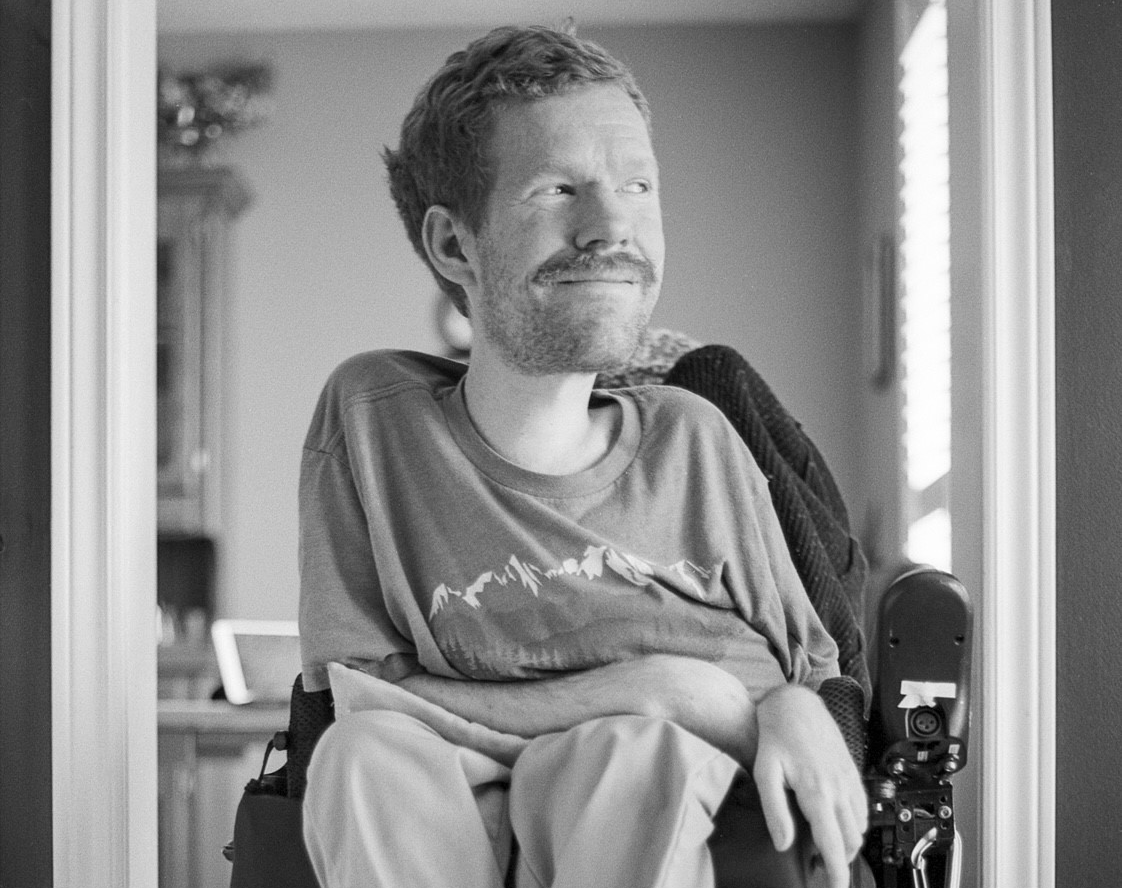Kevan
Creativity and disability
(part 3)

Ever since I could form words, I have been telling stories. It is my great passion in life. After college, a friend gave me a novel by a German cartoonist who pretty much broke all the rules of conventional storytelling.
“I remember sitting at my desk, reading this weird book, and I felt the author say to me, ‘You should share your stories with the world, too.’”
That’s when I set out to self-publish my first book, and more followed over the next few years. None of these books had much to do with disability, and it was a constant uphill battle against people’s expectations.
Finally, I wrote a book about my experience with disability and it was picked up by a publisher. I saw this as two opportunities. First, it was certainly a story worth telling and I was happy to do it; second, I was hopeful that it might grow my audience and that audience would then say, “We see your value as a writer. What other stories do you have?” However, the battle continues.
Last summer, I had lunch with a fellow-writer, and we were sharing with one another our latest projects. I told him about the new book I was working on, and mentioned that one of the minor characters was a man with a disability. My friend’s initial response was that I should scrap the rest of the book and refocus my energies on telling that character’s story, with my unique insight on the subject.
I tell you all of this to say that, if you are an artist of any sort with a disability and you don’t want your art to be all about said disability, I understand your desire and I understand your frustration with a world that suggests otherwise. Whether you are a writer, musician, actor, poet, painter, sculptor, basket weaver, whatever, you are more than the disease in your body and your craft has the capacity to express more than the disease in your body, even if a lot of the world is too short-sighted to grasp that.
Every artist deals with this issue of consumers’ expectations.
“Just as you struggle to be seen beyond your disability in your day-to-day, so you will always struggle in the same way with your art.”
But there are people who truly see you—those couple of friends who really get you. And you will find the same to be true with your art. Through the cacophony of people asking about your wheelchair, there will be a voice or two that celebrate your craft simply for what it is. Those couple of voices are more refreshing than you can imagine. If you pay attention to them, you will be revived, inspired, and carried along just fine. So keep an ear out.